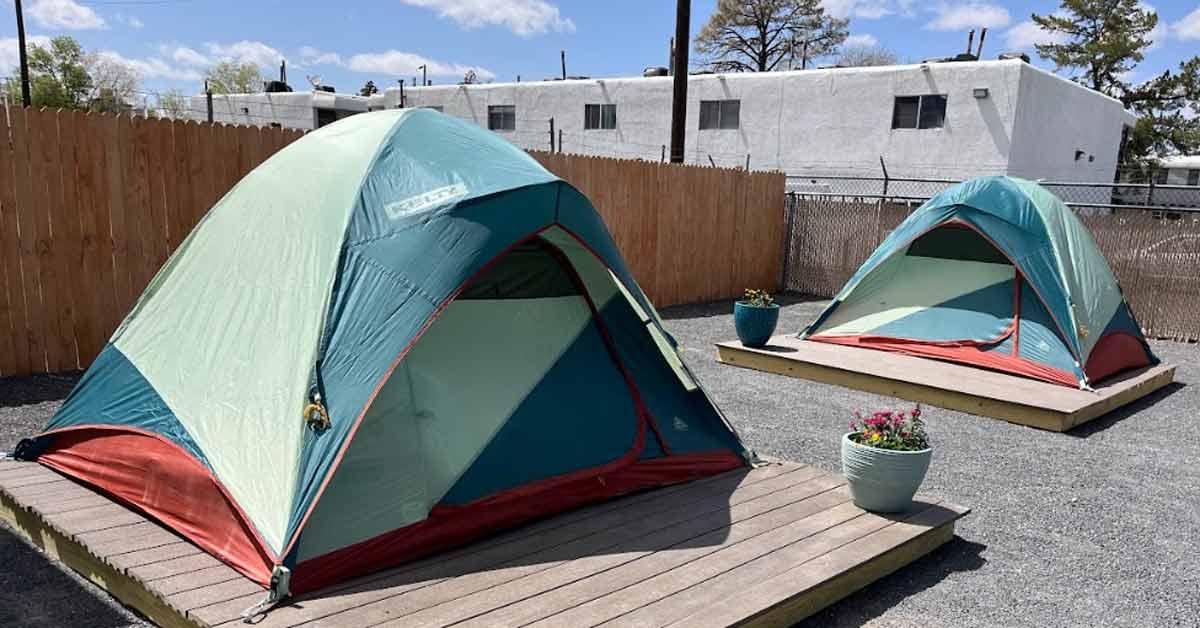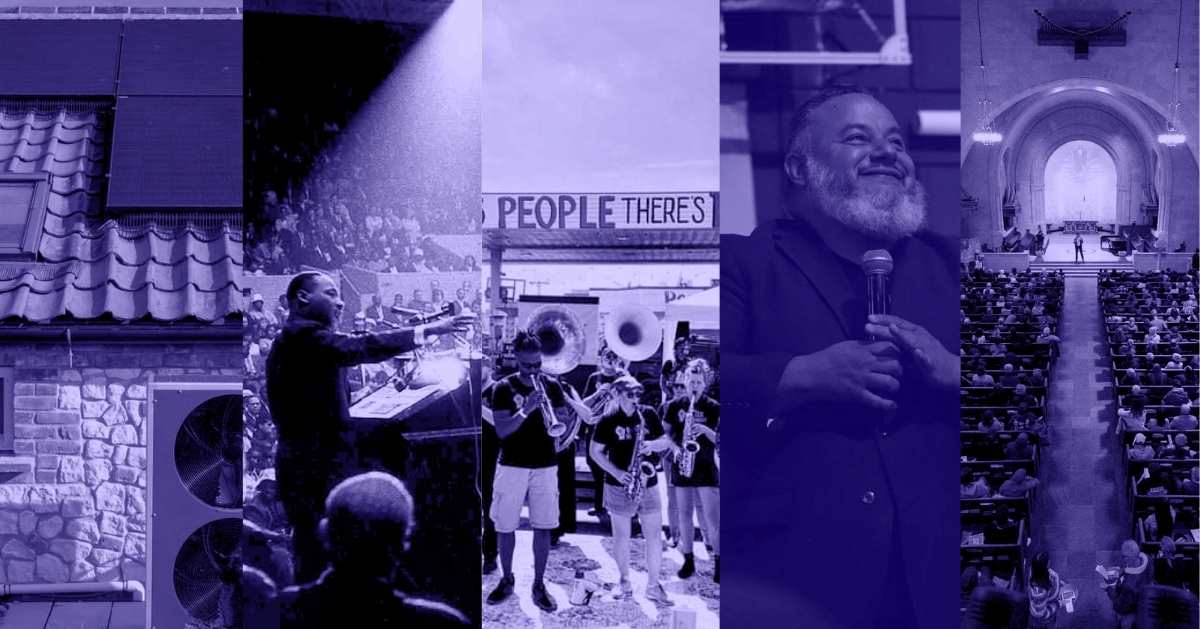Last week, President Trump signed an executive order that makes it easier for states to remove homeless encampments from public places, as well as force people experiencing homelessness into mental health or addiction treatment programs.
Titled “Ending Crime and Disorder On America’s Streets,” the executive order lays the groundwork for further criminalization of unhoused individuals “through the appropriate use of civil commitment … to restore public order.”
Although homelessness is increasing across the country, this practice — which has already been adopted in a handful of cities in the United States — is not effective, public servants are saying.
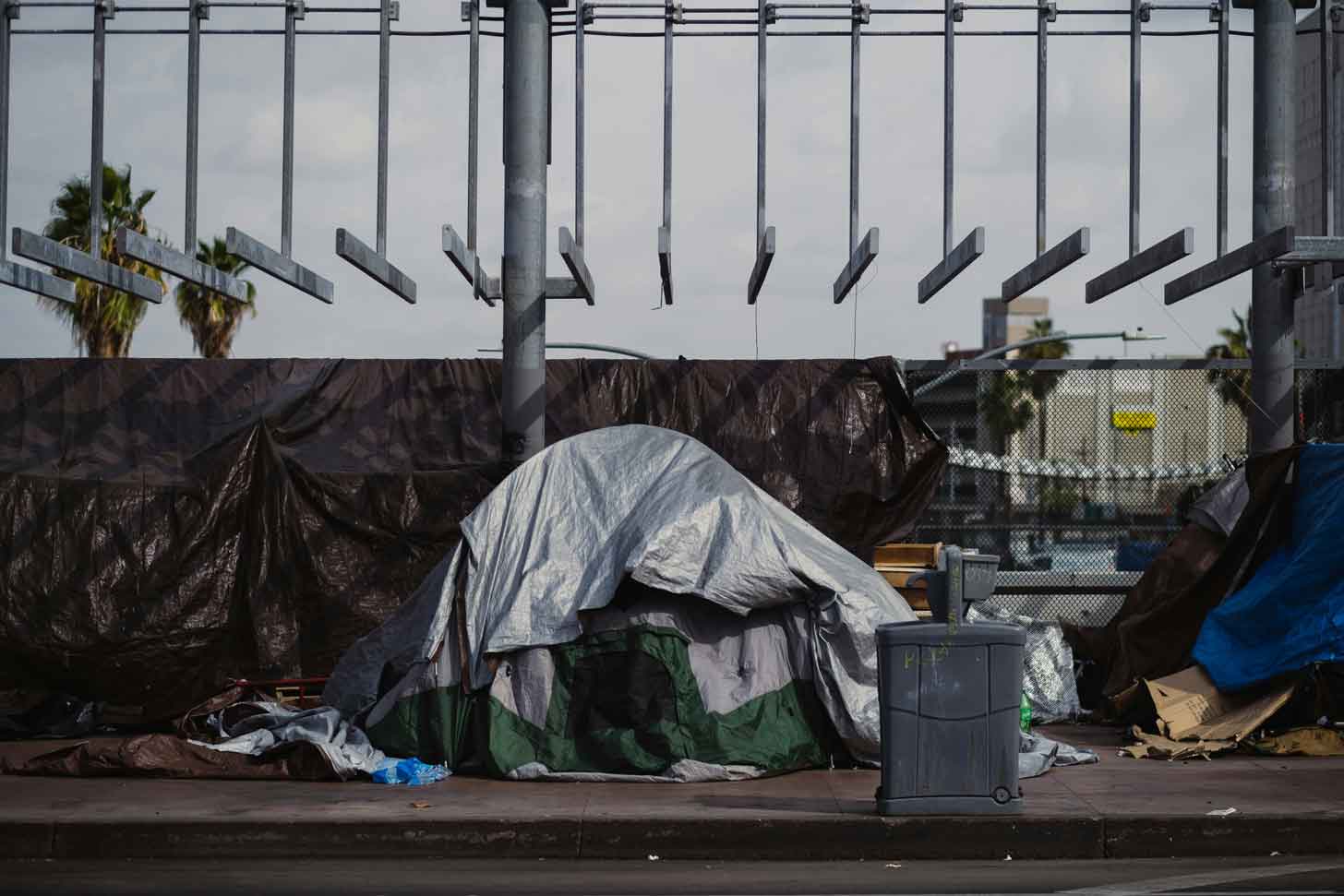
“It doesn't create housing, it doesn't treat illness, it doesn't make streets safer, and it doesn't get at the root of the problem, which is the need for more housing,” Alexandria, Virginia Mayor Alyia Gaskins, told NPR. “I wish we were focused on solutions instead.”
For local government leaders and experts in housing and homelessness, the way to decrease the number of people living on the streets is to adopt a “housing first” approach.
Housing First is an approach guided by the belief that people need basic necessities like a safe place to live, food, and urgent medical care before they are able to transition into getting a job or improving their finances, the National Alliance to End Homelessness explains.
The National Homelessness Law Center has shared that it will “use every tool at our disposal to fight back against the growing movement to make it a crime to be homeless and poor in America,” in a statement following the signing of the new executive order.
Although the executive order may incentivize local governments to implement involuntary commitment programs and encampment sweeps, plenty of leaders — like Mayor Gaskins — don’t seem to be taking the bait.
In Albuquerque, New Mexico, Mayor Tim Keller actually wants to expand the city’s homelessness services.
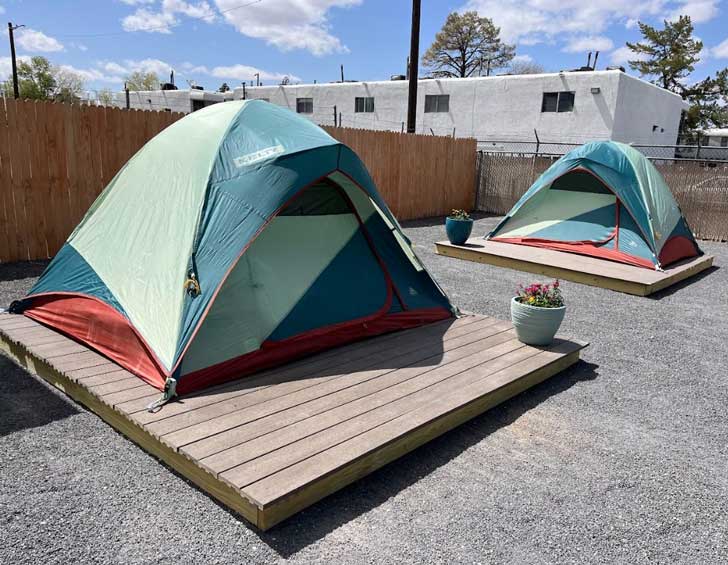
In April of this year, the City of Albuquerque opened its first “safe outdoor space,” or SOS, where a location in the city provides dedicated spaces for tents, RVs, or other vehicles for temporary occupancy.
Essentially, instead of clearing encampments, they move homeless folks to a safe location, where they can more easily access social services and support facilities.
“We know not everyone is ready to immediately go to a shelter and receive services, but everyone deserves a safe place to rest their head at night. That’s why there is a need for safe outdoor spaces,” said the city’s health, housing and homelessness director Gilbert Ramirez.
“Safe outdoor spaces create a touchpoint where people can receive on-site services and connections to other supports.”
The new SOS is located on the property of New Creation Church, where church leaders provide 10 tents with sleeping bags and storage boxes for unhoused New Mexicans who need a safe place to spend the night.
There is also a restroom and hand-washing station outside, as well as access to showers and laundry services inside a 24-hour facility in the church.
“We have to continue to work on the systemic causes. And while we work on the systemic causes, we have to provide humane and immediate response to people who are living on the street, fellow human beings and neighbors,” New Creation Church Pastor Jesse Harden told KOB4 in April.
“And so this safe outdoor space attempts to be just that.”
Unfortunately, the city says, it’s been hard to implement the program in other locations due to “red tape.”
For instance, a local used bookstore let folks set up encampments on its property, but the owner was fined for an ordinance violation because he was unable to hire a full-time service provider.
So now, the City Council has introduced a new amendment to help reduce some cost barriers and increase safe spaces across the city.
The law, as it stands, requires a permitted safe space to maintain 24/7 staff, offer food, mental and physical health services. Under the proposed amendment, permitted safe spaces will be required to offer a minimum of three social services, which can include peer support or recovery groups, connecting residents with housing resources, or offering GED assistance, or adult education, the Albuquerque Journal reports.
Staffing requirements would be lessened to 24/7 hours to weekday business hours, though one person must remain on-call at all times in case of complaints or emergencies.
Mayor Keller is in support of the new requirements.
“The current law makes you basically have a shower 24/7 on the site. If you only have ten people at a site, the showers aren't going 24/7. There are different ways to problem-solve around and to have a temporary trailer that comes on different days a week,” Keller told KOAT 7.
“If you're, like living outside, you can typically find a shelter area, other than a day like today, where you can have those consultations and provide services. You don't necessarily need dedicated space that's then empty the rest of the time.”
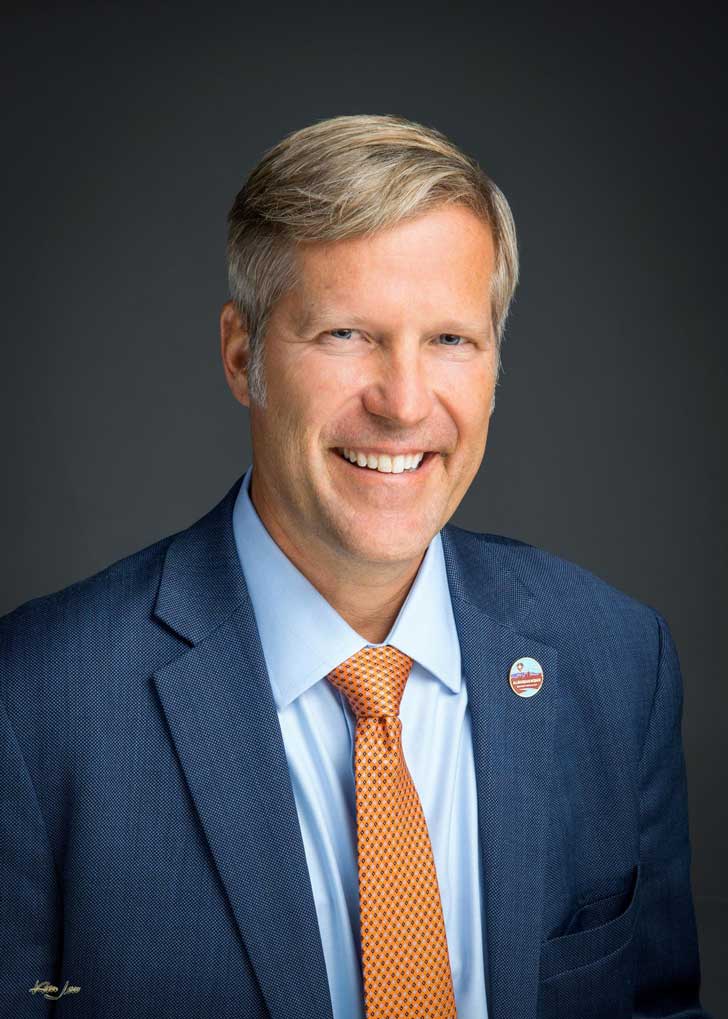
The hope is that more people can access the immediate help they need, like Michael Maldonado, and his wife, who started living at the SOS at New Creation Church in May.
“It's been a blessing,” Maldonado told KOAT 7. “In addition to these places that, you know, people make the transition in a safe environment, we all go out and get food for each other and stuff like that. Whatever is needed. It's a pretty tight community. We help each other out.”
The vision for the SOS initiative is based on a failed experiment the city tried in the past. By scaling down the number of people allowed in one location, and ideally making it easier to develop more of these sites, Keller said, the city hopes to see real success.
“In the past, we envisioned a few larger safe outdoor spaces across Albuquerque, but after learning what’s worked in other cities, we’re shifting toward a network of smaller sites,” Keller said in a statement.
“Sites serving 20 people or less at a time are easier to manage, help prevent narcotics use and limit the impact on surrounding neighborhoods.”
Safe, designated campsites are also taking hold in other cities, like San Diego, Portland, Denver, and more, especially in the face of precarious funding and uncertainty at the federal level.
State lawmakers in New Mexico have allocated $80 million towards homelessness in this year’s state budget proposal, KOB4 reported, with $40 million going to the city of Albuquerque, and another $40 million to Bernalillo County.
“This is the restart, the rebirth, the regeneration of an older idea. But now in a way that we think can work for Albuquerque,” Keller said earlier this year.
“[It can] actually be a place people can go, besides the street, for a huge group of folks who … just want to be on their own, to recover on their own safely.”
Header image courtesy of the City of Albuquerque
